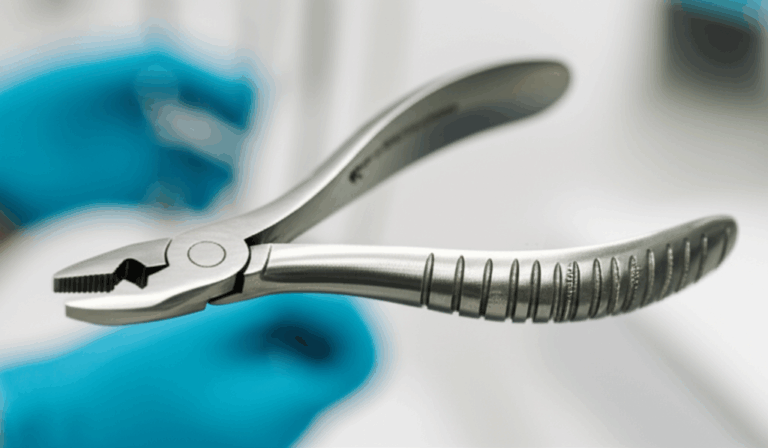
Can a Non-Dentist Own a Dental Practice? My Guide to Legalities, Business Models, and Real Life
Table of Contents
- Dental Support Organizations (DSOs)
- Management Services Organizations (MSOs)
- The Trouble with Silent Partnerships
- Clinical Autonomy
- Fee Splitting
- Setting Up the Right Structures
- The Role of Compliance and Risk
- What Non-Dentist Investors Gain
- What Dentists Get Out of It
- Problems, Ethics, and Patient Care Risks
1. Introduction: Why I Asked if Non-Dentists Can Own Practices
Picture yourself wanting to invest in the dental world. That was me—not a dentist, but really interested because this part of health care seemed calm and always growing. I saw a lot of dental clinics doing well, DSOs popping up, private equity buying dental practices, and the word was that you could make good money. But here’s the thing—I also kept running into talk about tough laws and the “CPOD” rules.
So I wanted to get down to the real answer: Can a non-dentist own a dental practice? Well, it’s not just yes or no. It means understanding the law, types of business, and what’s fair or not. There are more traps and weird rules here than you might think.
This is everything I found, learned from my research, talks with experts, and asking way too many questions. If you care about this—even if you’re just nosy—this should help.
2. The Corporate Practice of Dentistry Doctrine—The Basics
When I started, the first confusing thing was “CPOD”—the Corporate Practice of Dentistry doctrine. What the heck is that? After reading online and calling some health care lawyers, here’s how I’d sum it up:
CPOD rules stop non-dentists from owning or running dental clinics. The main point is to make sure only real dentists decide how patients get treated. Lawmakers and dental boards don’t want business people (like me) telling dentists what to do just to make more money.
This was hammered in by everyone I talked to, especially by folks giving dentist compliance classes. The simple message: Only dentists can make dentist decisions.
But there’s a big twist—CPOD rules change a lot depending on where you are, which led me to the next thing I had to figure out.
3. My Deep Dive: State Law Variations and Finding the Gray Areas
It wasn’t long before I found out the CPOD rules are not the same everywhere. Some states just say “no way” to non-dentist owners. Like Texas or New York—there, dental boards are strict. In other places, the rules aren’t as tight, and you can find ways to work around them.
One compliance boss I called these spots “gray states.” The law might say you can’t own a dental clinic, but it leaves space for management groups (like DSOs or MSOs) to do almost everything except treat patients.
So, can you, a non-dentist, own a clinic? Totally depends on which state and how you set things up. Small changes in details matter a lot.
4. How Non-Dentists Can Get Involved—Real-World Business Models
I wanted to see what paths real people took to get into dental clinics if they weren’t dentists themselves. Here are the main ways I found:
Dental Support Organizations (DSOs)
This is where it clicked for me. DSOs—Dental Support Organizations—are the main way non-dentists get in on dental business without breaking CPOD rules.
How it works:
- The dentist (or a group of them) owns the clinical part (it’s often a certain company type used only by health pros).
- The DSO (owned by non-dentists, investors, or private equity) runs everything else: hiring, money, advertising, IT, and more.
- Both sides have a contract that says who does what.
Non-dentists like me can use their business skills and help the clinic run smoother. As long as I (the non-dentist) never decide anything about patient care, these structures usually pass legal tests.
Management Services Organizations (MSOs)
MSOs are like DSOs but a little quieter and smaller. They sometimes deal with dental specialties or fewer locations.
The MSO usually:
- Owns stuff, like equipment, the building, or computers
- Rents it out to the dentist and helps manage things
- Never touches or controls anything about dental decisions
The Trouble With Silent Partnerships
Sometimes I heard about “silent partners”—non-dentists who say they only invest money and let dentists do the rest. Every lawyer warned me about this. If you, as a non-dentist, control any clinical decisions or get money straight from treatment fees instead of just set service charges, you’re probably breaking the rules.
A few big cases from places like California and Texas showed these “silent” deals blow up all the time. I learned very fast to not trust this unless the paperwork is super clear.
5. Diving into the Legal Maze—Key Ownership Restrictions
The more I learned, the more I realized: Following the rules is everything. Here’s what you need to know if you’re thinking about joining in.
Clinical Autonomy
As a non-dentist (me, or maybe you), you can’t give care, be the boss of dentists, or even set clinic policies about patient care. Dentists always have the final say. This is checked so carefully that even looking like you might be in control can get you in trouble.
That’s why contracts are so important. DSOs use agreements written by dental lawyers and keep things very separated.
Fee Splitting
This tripped me up, so here’s what it means:
- Lots of states don’t let you split the money made from patient care with non-dentists.
- Service fees to the management group have to be firm numbers, or only for things they really do, not just a slice of all dental charges.
Think of it like rent—you pay the owner for renting, not for each sale at your store.
Setting Up the Right Structures
I found out that the group doing dental work (the “professional company”) almost always has to be owned only by dentists. I, as a non-dentist, could own the building, the tools, or maybe the trademark—but not the goods actually fixing teeth.
Management groups (the DSO or MSO) are set up as normal businesses, but with contracts with the pro side.
The Role of Compliance and Risk
There’s more to this than just who owns what. If you’re part of a dental business, you have to:
- Follow privacy rules like HIPAA
- Never break anti-kickback laws
- Keep up with changing state rules
- Have regular checks and legal reviews—because you can’t use “I didn’t know” as an excuse if you get caught
Everyone I asked, from accountants to risk experts, said: get a great lawyer who does dental work. And check your contracts often.
6. The Upsides and Downsides from My Point of View
Every chance at making money comes with risk and reward. Dental is just the same.
What Non-Dentist Investors Gain
For me and people like me, this was tempting:
- The dental business doesn’t go up and down crazily.
- Using DSOs or MSOs, I could actually help clinics do better.
- You can grow fast, and bigger clinics sell for way more (sometimes up to three times as much money as smaller, solo offices).
What Dentists Get Out of It
Dentists get out from under the pile of office work. When they use a DSO, they can just treat their patients. With better ads, tech, and hiring, dentists can see more people and worry less about paperwork and insurance.
I talked to dentists who joined DSOs, and most said their work-life was a lot better. The 2020 ADA survey said about two out of three DSO dentists were happy with the setup.
Problems, Ethics, and Patient Care Risks
But don’t think it’s easy.
First, it’s confusing. The rules change by state and keep changing. Mess up once, and you might get fined or shut down.
Second, ethics matter. If you start cutting corners or only care about quick cash, patients might get hurt—and your business can get a bad name. Some patients worry DSOs mean bad care, but many say it’s better because of tech and longer office hours.
Last, if dentists stop being in charge of patient care, morale drops and dentists leave.
7. My Step-By-Step Experience: How I’d Do Non-Dentist Dental Investment
Here’s the order I’d follow if I started out as a non-dentist wanting a piece of a dental business:
Step 1: Hire the Right Legal Team
Never guess. Get a lawyer who does dental law, and pay them well.
Step 2: Find a Dentist Partner
In most states, a dentist must own the clinical part. Choose your partners wisely.
Step 3: Structure the Management Agreement
Build a contract with your lawyer. The DSO can only do business stuff. Clinical decisions are off-limits.
Step 4: Financial Planning and Valuation
Work with accountants and people who sell clinics. DSOs can sell for more, but every case is different. Some banks also give loans for these projects if they understand dental.
Step 5: Build a Compliance Culture
Set up regular audits, check contracts every year, and talk over “what if” problems. One compliance boss told me, “Act like it’s day one every year and stay humble.”
Don’t forget to look at partnerships with a good china dental lab or see what’s new from a digital dental lab. They can offer more value and better service for both patients and dentists.
8. Data, Facts, and Case Studies That Helped Me Understand
Here are a few numbers and stories that really helped me get the lay of the land:
- DSO Growth: They went from about 1,200 practices in 2005 to over 15,000 by 2022, and could make up 30% of clinics by 2027.
- Private Equity: A huge amount of money is flowing into dental groups by investors.
- Valuations: DSO-supported clinics often sell for triple what solo clinics sell for.
- Risk Stories: States like Texas and North Carolina have hit non-dentist-run clinics with big fines and shutdowns.
- Dentist Satisfaction: ADA surveys say most DSO-connected dentists are happy, but some still worry about losing control.
- Patient Views: Most patients don’t even notice any change unless the care gets worse. Better tech usually makes them happier.
All these facts helped me decide if the risk was worth it.
9. Final Thoughts: What I’d Tell Anyone Considering This Path
Looking back, the main lesson is this: Non-dentists can get involved and make money in dental, but only if you follow the rules and respect patients. There aren’t any easy ways around CPOD or clinical independence.
So, if you want to try this—learn first, and always pay for good legal advice. Don’t fall for get-rich-quick tricks. Build real partnerships, keep it legal, and always put patients first.
And look for solid partners for extra services, like a crown and bridge lab to add even more value.
Bottom line: Getting into dental as a non-dentist takes effort, teamwork, and paying close attention to every detail. Do things right, and the rewards can be big. Cut corners, and you’ll face problems you never imagined.
That’s my story, and I hope it helps you figure out your own path in the dental business!








